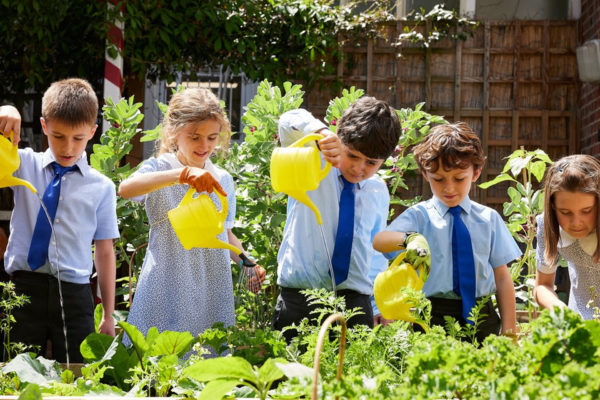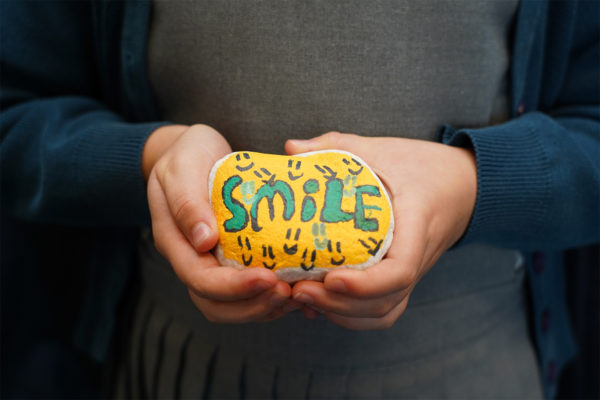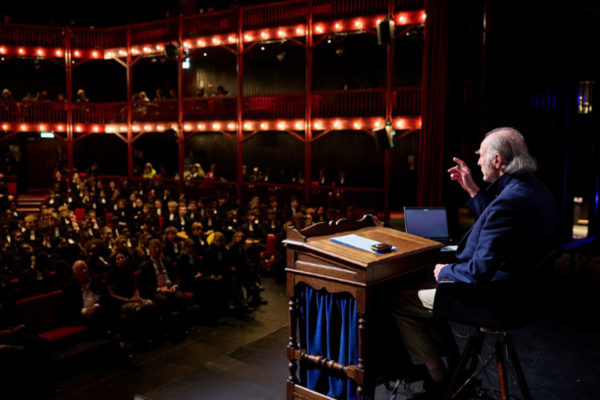Broaden Education: British Schools Are Working With Refugee Camps
By
1 year ago
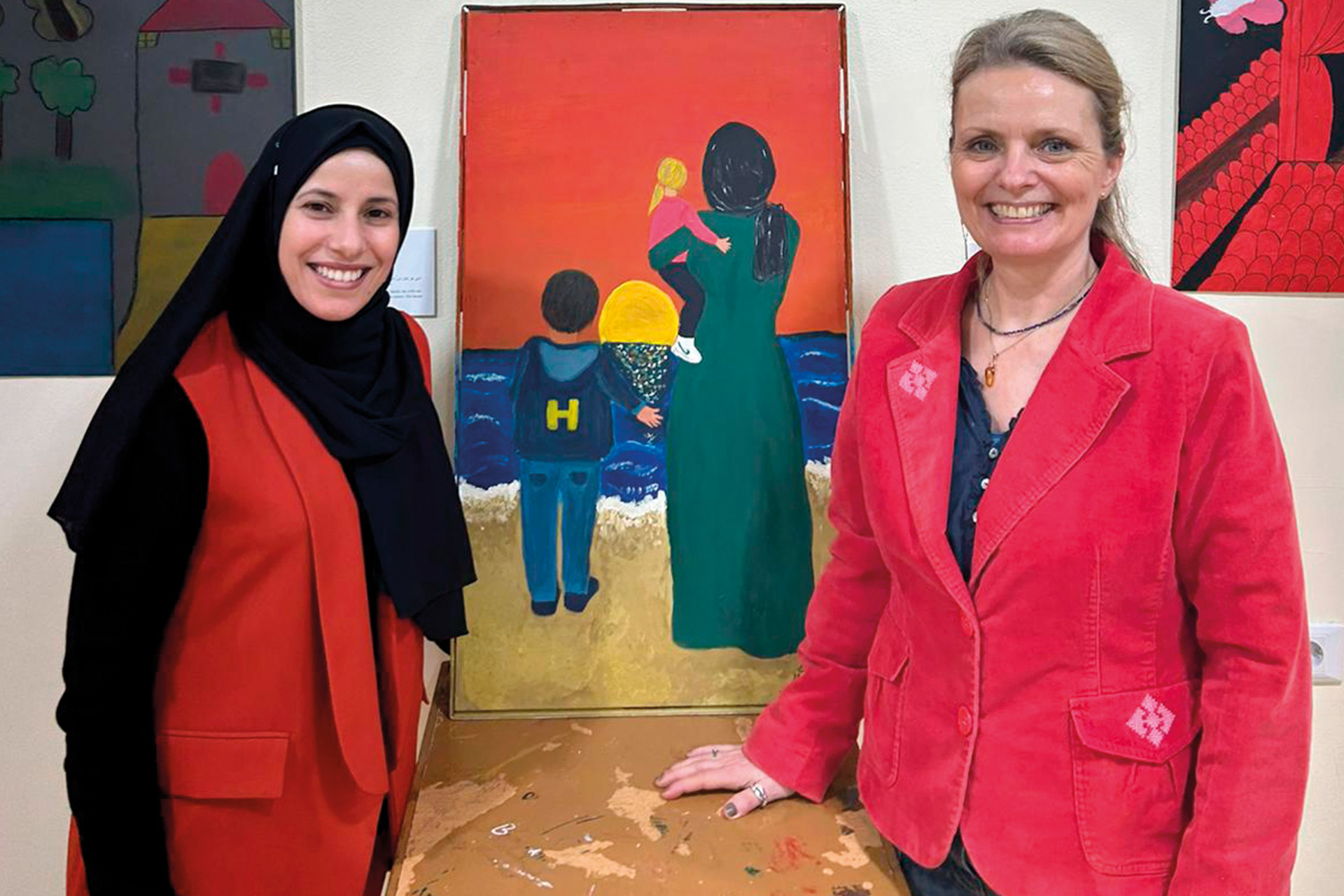
British schools are pairing with refugee camps to broaden children’s education, says Meike Ziervogel, CEO of the Alsama Project
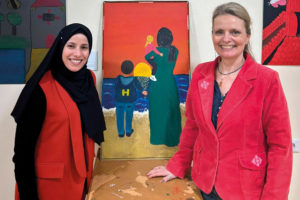
Alsama Co-Founders Meike Ziervogel (right) and Kadria Hussein
Three years ago, 16-year-old Maram was illiterate. Aged just seven, her city was besieged by Isis, and she and her family fled to Shatila camp in Lebanon. Here, she was about to become a child bride and, in her words, a ‘girl without value’. But following three years at the Alsama Project School, which I co-founded in 2020 with my friend and partner Syrian Kadria Hussein, Maram has been offered a scholarship to Padworth College in the UK. This is an extraordinary achievement. She has learned not only to read and write her own language, but also to speak fluent English, in an environment where there are no certainties, where entire families live in one room without proper electricity, and where street crime and child marriage are part of the everyday.
Alsama means ‘sky’ in Arabic, and the word refers to the new horizons we’re trying to create for young refugees. The project came about not because I was inspired by the children (of course I was, but that makes it sound as though I acted from pure charity), but because the children themselves demanded that they needed an education to improve the potential for their futures.
To those of us in the UK whose children are automatically taught to read and write, the idea of young people having no access to education is inconceivable. But for the tens of thousands of teenagers living in slum conditions in the vast and overcrowded camps in Lebanon, this is their reality.
Running schools isn’t a career swap I had ever envisaged from the safety of my publishing company in the UK. But in 2018, our youngest son finished school, and my husband and I took a gap year. Because I speak Arabic, we decided to volunteer at a camp outside Beirut – intending to stay for a year.
Nothing can prepare you for the reality of the camps, especially in contrast to the cushioned lives that we have led. Shatila camp was created in 1948 for 3,000 Palestinian refugees. Now, there are up to 40,000 people living there – most of them having fled war in Syria. It’s incredibly overcrowded, like a vast slum area, and people live well below the poverty line, with extended families in cramped and damp rooms.
When we arrived in 2018, I was helping refugee women to create a business and my husband set up a cricket hub. Then Kadria and I started a small empowerment centre, with the aim of helping girls avoid entering early marriage – teaching awareness and reminding them that they had the right to refuse. These girls asked us to teach them to read, write and learn to budget. That’s how the schools started.
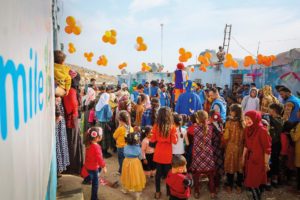
(Image from Pexels)
We began in Shatila camp. Now we have three small schools of 200 pupils each in two camps; Shatila and Bourj el Barajneh. We teach 44 weeks a year, with five days at school and two devoted to cricket, which most students play, and boys and girls can learn together. Cricket teaches discipline and focus; you can tell the students who play and those who don’t. Our pupils don’t want to return to their homes at the end of the school day. We have developed our own curriculum, which allows students to make up for the lost years in just six years and with the children grouped by ability rather than age. It’s like a refugee International Baccalaureate, aiming to take them from illiterate to university level. In three years’ time we believe that we will have 12 students ready for university. It’s a re-defining of education – and one that needs to be internationally embraced. We don’t have a refugee crisis – this is the state of the world. In 2021-2022, the refugee population expanded by 50 percent.
One of our difficulties is in persuading parents to allow their children to attend, especially those who see no reason to educate girls. However, they rapidly understand the benefits of their children’s education as their sons and daughters begin to fill in online forms and help negotiate prices at the market. Gradually, the fear that education is negative, fades away. Students often come from a culture where marriage age 13 or 14 is the norm. It’s what’s expected of them, and it’s what they expect from life. One of the first things we do is teach children – of both sexes – that they can say no. We explain to them that child marriage is against the law and that it brings many problems, such as the dangers of domestic violence and having children at far too young an age. Imagine your Year 3 daughter marrying and having babies before her GCSEs. That’s the reality for some of these girls.
Most refugees simply want to return home, and what we are doing is giving our teenagers the tools to improve their communities and hopefully help to rebuild their war-torn country one day. It might be easy to dismiss these children as being tragic. Yet, from their incredibly difficult and hopeless beginning, they are propelling themselves forwards. I look at them and think wow, not just in terms of the speed at which they are learning, but also how much they can contribute to the world with their unique qualities and understanding. We have two students with scholarships at schools in Dubai and those who have trained with us are now learning to teach others cricket, yoga and literacy.
We currently have a waiting list of more than 1,500 illiterate teenagers. To educate one of them at an Alsama school costs only £55 a month per student. Even a commitment of £10 a month is a welcome contribution.
If you close your eyes and listen to the joyful sounds of boys and girls playing cricket on the waste ground around the camps, they could be anywhere in the world. They are ordinary children in an unjust situation. We’ve promised our students that whenever we open a school, we will stay open. They are owed that much support at the very least.




